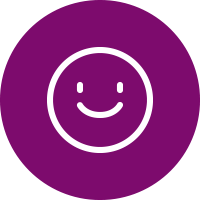Rebecca Smye-Rumsby
Design . Technology . Project Teacher
e-Portfolio
Establish and maintain effective professional relationships focused on the learning and well-being of ākonga
i. engage in ethical, respectful, positive and collaborative professional relationships with: • ākonga
Dispositional Curriculum
At HPSS we place emphasis on what we call the dispositional curriculum which looks at the learner in a holistic sense thinking about hauora: Well-being (Social, physical, spiritual, mental and emotion).
We metalearn, which is where we learn about learning, and reflect on the journey and set goals to move forward.
Learning Hubs and Learning Communities Overview
Hub Time
We spend 5 hours a week in 'hub' which is our space to work with the dispositional curriculum. Here, we learn to understand the HPSS habits (Resilient, Resourceful, Responsive, Reflective, Contributive, Compassionate, Creative, Curious, Purposeful, Adventurous) and put them into practice.
We spend this time in groups of around 15 learners. When the school is fully established, the students will remain with the same coaches and peers for the entirety of their school life. This offers them a space to belong and at least one individual that is their advocate during their learning journey.

qowkda



At the end of Semester One I gathered student voice around the my teaching and planning in relation to that Module.
I created questions in relation to my professional goals so that they would become measurable and I could make a comparison to the end of Semester Two to see progress.
Student voice from Diamonds
Student voice from Fabricus

Additional opportunities to build relationships
Creating costumes for Stage Challenge
Supervising HPSS Movie night
Supervising the HPSS disco night
Joining the Te Reo Maori SPIN
Helping out on the Duke of Edinburgh practice camp for Bronze award

ii. engage in ethical, respectful, positive and collaborative professional relationships with: teaching colleagues, support staff and other professionals
A visit from Lee Warn
In our module 'Funny Bones', we are looking at how we can use Science and Technology to enable the body. We've looked at biomechanics and how bones and joints work, and how things like prosthetics have evolved over time.
Our visitor, Lee Warn came in to talk to our students about his life in a wheelchair, the obsacles that he's encountered and the opportunities that have presented themselves.
We had a meeting prior to the lesson, in which we unpacked our rubric and looked at the school values. We also looked at the students prepared questions to anticipate where their interests lie.
I believe that the talk was powerful for everyone involved.


Thought-Wired came to our module Funny Bones to talk to our students about systems in the body and how their technology enables the body


iii. engage in ethical, respectful, positive and collaborative professional relationships with: • whānau and other carers of ākonga
Opportunities to collaborate with whānau and other carers of ākonga include:
-Beginning of the year IEMs
A meeting with the student and the parents as a hub coach. A chance to get to know the learner and discuss learning needs and goals
-Mid-year IEMS
An opportunity to reflect on the student's learning at that point in the year, and a chance to collaborate by talking about further support at home.
-End of year celebrations
An opportunity to reflect on the whole year and a chance to meet the new hub coach if there are been changes made. This is an informal event where parents and care givers can simply chat with staff.
-Contact home
Term progress reports
Term summative reports with grades/comments
Fortnightly emails home
(Additional contact home/meetings when necessary)
iv. engage in ethical, respectful, positive and collaborative professional relationships with: • groups and individuals in the community
BIG PROJECTS: Semester One
In BPSmart, we worked with the students to respond to the task of 'keeping the community safe'.
Many students focused on road safety by exploring e-textiles or bus stop design.
We supported the students in contacting relevant companies, gathering community voice such as conducting surveys and interviewing the police.





